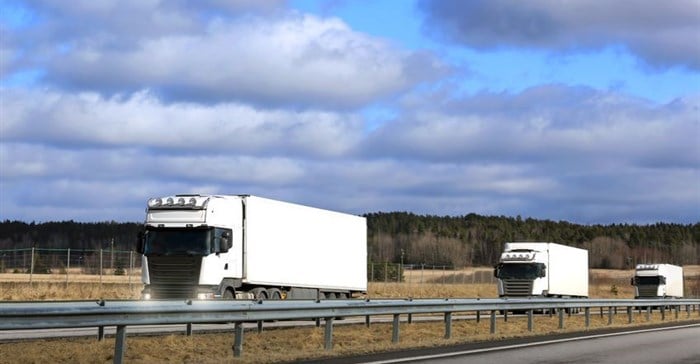South Africa relies on the use of road transport, amongst other modes for the delivery of goods across the country, and because of the increased traffic congestion, the logistics sector already struggles to deliver on time. It is estimated that more than 80% of freight in South Africa is transported by road.

Source: ©Taina Sohlman via
123RFThe recent unrests in the KwaZulu Natal (KZN) and Gauteng provinces (and some small parts in other areas) which caused significant damage to key infrastructure and facilities means this has now officially become worse.
The reality is that the recent protests followed by a massive looting spree causing unprecedented levels of unrest have destroyed and disrupted vital transports, logistics, warehousing and distribution facilities in the two provinces.
The South African economy was already reeling from the impact of the Covid-19 related lockdown, and the general supply of goods and services was already suffering. This crisis can only exacerbate these challenges. With high levels of unemployment and inflation, a contracting economy coupled with stagnating recovery, and dwindling industrial activities, we are officially in grave trouble.
Today, fears of food insecurity and shortage continue to rise; and because of the density of the situation, there are new fears of potential other lootings for essential supplies. With major logistics companies already reporting major disruptions to their operations, there is no telling when normalcy is a possibility.
Already, a couple of companies have announced their inability to honour their contractual obligations due to the damage incurred. State-owned transport operator Transnet declared force majeure last week on the vital Natcor (Natal Corridor) rail route which connects KZN and Gauteng.
The South African Petroleum Refineries, which is responsible for 35% of the country's fuel supply through Shell and BP outlets also implemented a force majeure, also due to the disruptive unrests. Some logistics companies grounded their operations in risk areas. This has raised fears of fuel shortages across the country, posing more threats to economic activity.
While some calm has been restored in the two provinces, the damage is already done. The long-term consequences of this damage will be felt in the years to come. From more loss of jobs, closure of businesses, to a reduction in fiscal income due to lesser tax contributions, large scale disinvestments and slowing FDI flows.
This has a ripple effect on the state’s ability to foster economic recovery, pay social grants and build key economic infrastructure (or even maintain existing ones). Essentially, the riots make our economic prospects even grimmer.
Could this have been avoided?
I believe that we could’ve handled the situation better and reacted much quicker. However, there are lessons to be learned in a crisis. This situation offers a unique opportunity to strengthen our ability to detect and prevent similar uprisings in the future and to understand the root cause of this crisis. I think we can all agree that at the root of the unrest are socio-economic challenges including high youth unemployment and poverty, inequality and widespread fatigue caused by the pandemic - all being exploited somehow through the politics of today.
Rebuilding our supply chain sector
These disruptions not only affected essential supplies -- but also affected medical and vaccines distribution: delaying the country’s vaccination programme by several months. This begs the question, could the supply chain networks and links operate differently to prevent a similar disruption in the future?
I believe that technology can help us better preempt, mitigate and respond to disasters. Artificial intelligence for example could help us collect and interpret important data, and therefore make better decisions through information.
Additionally, technological integration of our supply chain networks and distribution could also help the industry continue to serve the market even when disruptions occur.
Alternative logistics technologies such as drones could be used right now to distribute supplies even to risky areas.
A deliberate reinvestment into our manufacturing sector will also be key in ensuring that we not only get out of this difficult situation but prevent shortages when disruption occurs.
I also believe that by now the government should’ve realised the importance of SMMEs to our economy, especially township economies, therefore should invest more in fostering the successes of these businesses.
Lastly, still, on the subject of diversification of our supply chain networks, the country needs to invest in the resuscitation of our rail infrastructure, expand on it and introduce modernised locomotives for efficient transportation of goods.
This means improved, dynamic and integrated logistics strategies that not only protect the sector from disruptions but also enable an advanced and efficient service offering.













































